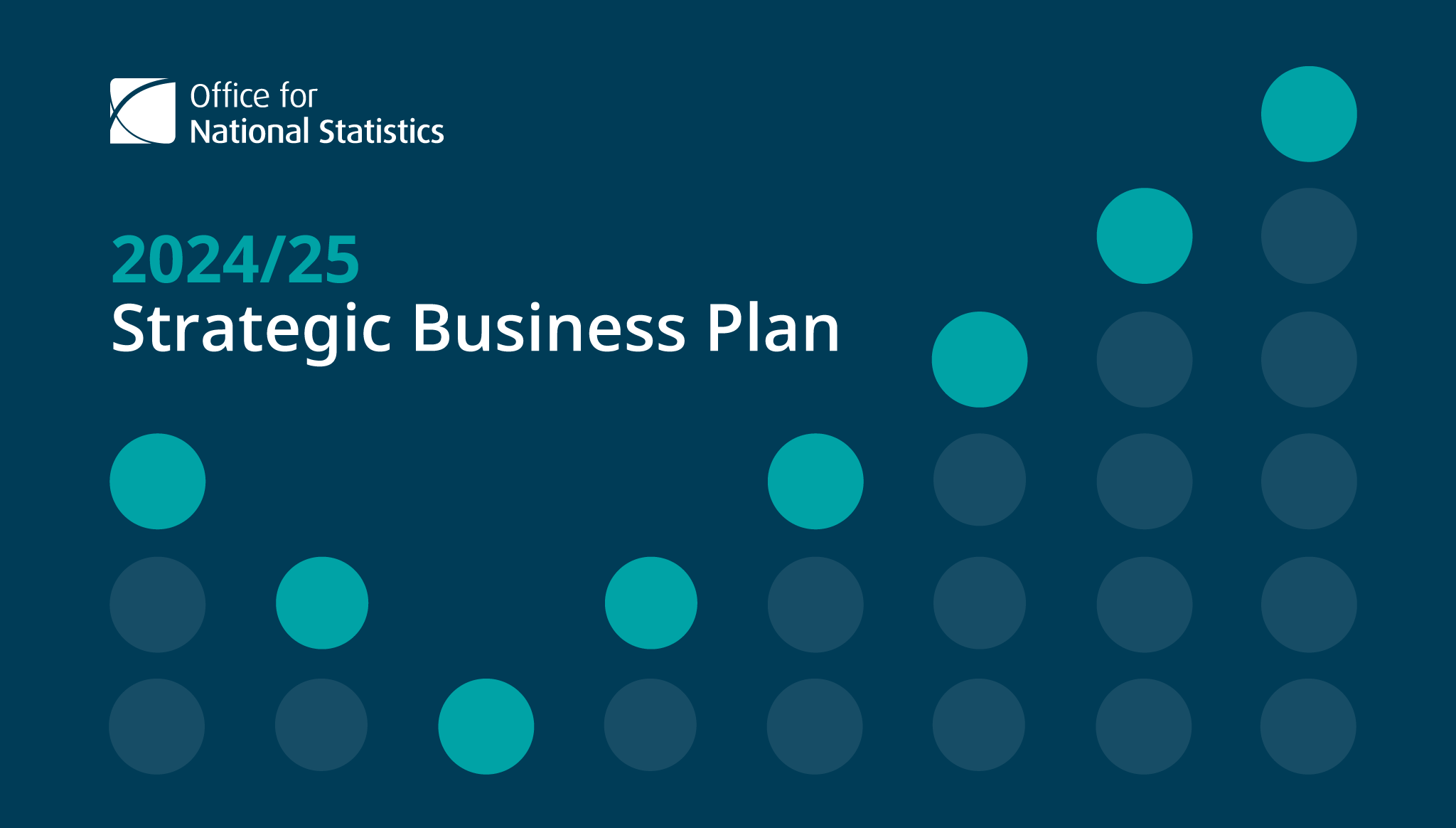National Statistician's Foreword
The UK Statistics Authority (UKSA) strategy, Statistics for the Public Good, sets out the need for high quality statistics and data to inform the United Kingdom (UK), improve lives and build for the future. The strategy empowers the statistical and analytical system to step up to inform the country, providing and communicating evidence to inform decisions, while reducing the potential for misrepresentation.
The Office for National Statistics (ONS) and wider Government Statistical Service (GSS) produce key statistics which provide insight into the health, society and economy of our nation. These are required to evolve quicker than ever, using new data sources and methods which are more frequent and granular to show how the UK is changing and developing. The ONS is also responsible for key aspects of the Digital Economy Act (DEA), which provides access to data in support of its remit from across the UK. The ONS also has an important role in ensuring that the country’s evidence is inclusive and reflective of the full characteristics of the UK.
The UKSA strategy was published just after the start of the COVID-19 pandemic and since then the statistical and analytical system has responded to the challenges of rising cost of living; economic and social impacts of industrial action; inactivity in the labour market; trade disruption in the Red Sea and the Russian invasion of Ukraine among others. We maintained our agility to respond innovatively to this changing environment. To sustain this level of responsiveness to user needs and the quality of our core statistics, we are changing the format, frequency and content of some of our outputs.
However, the work of the statistical and analytical system is also taking place against a tight financial and human resources backdrop – one in which cash budgets are being stretched by inflation and pay pressures, and in which some increasingly important skills are harder and more expensive to attract and retain, for example in data science. This has required tough decisions on prioritisation not only within the Authority but also across the whole system.
User demands for information on new topics and the need to maintain and enhance quality statistics have required us to prioritise and align our ambitions and obligations within our available resources. Over the past three years the ONS has been working at an incredible pace, and like other organisations it has been necessary to review our priorities and spending. Added to this and in line with other countries, the ONS has been facing the challenge of falling response rates for many of our household surveys in recent years.
Despite this, we continue to deliver our suite of core statistics including Gross Domestic Product (GDP), inflation and labour market participation, as well as crucial insight on areas such as the size of the population, migration patterns, health, and crime rates, striving to ensure all outputs are of the highest quality standard.
We have continued to engage our users at a strategic and operational level including identifying priorities and needs through government networks, local engagement, social listening and stakeholder insights research. We have continued to run the ONS Assembly to support regular dialogue on delivering inclusive data with charities and bodies representing the interests of different groups of the population.
Users also inform the ONS’s policy development and delivery through our expert user advisory groups, stakeholder engagement events and through specific consultations.
As we continue to deliver against the strategy in its final year, we have introduced a set of priority outcomes that focus on our statutory functions and provide the nation with the data it most needs, while driving forward innovation using radical and ambitious approaches to modernise how we work. These five priority outcomes form the basis of our 2024/25 Strategic Business Plan and are:
- An enhanced reputation and trustworthiness for delivering independent and high-quality statistics and analysis.
- Top quality published statistics on health, population and migration.
- Top quality published statistics on prices, GDP and employment.
- Greater linked data capabilities that result in faster, evidence-based decisions across government.
- Modernised and sustainable digital infrastructure using a secure, modularised approach.
Professor Sir Ian Diamond
National Statistician
UK Statistics Authority

